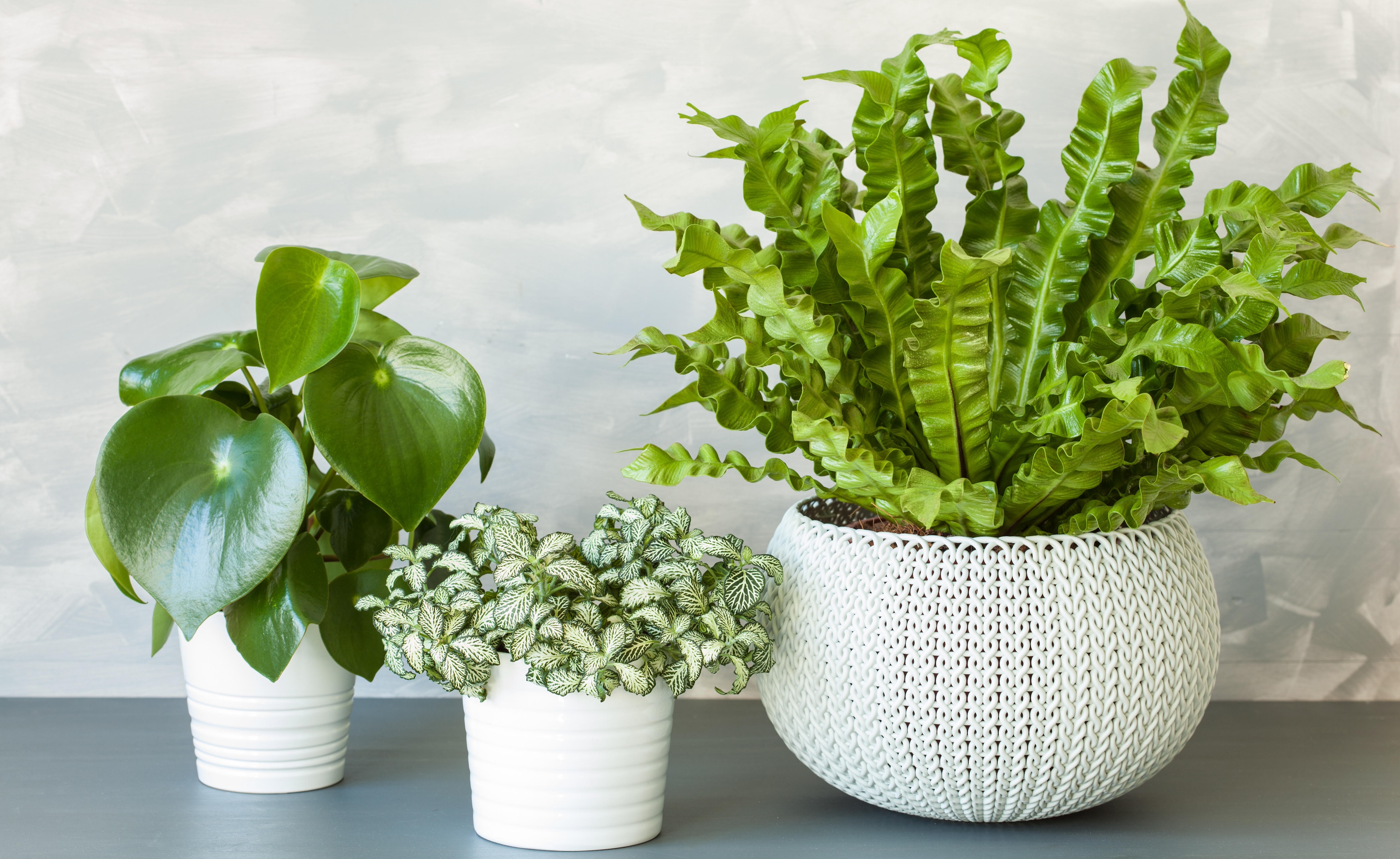
Knowing how to fix overwatered plants is a useful skill, if you have an indoor garden. Many of us have been guilty of killing plants with kindness by watering them too often. Or through lackadaisical watering techniques, like not letting them drain.
Even recognizing that we've overwatered our plants can be tricky, which is why it is essential to know the fundamentals of watering houseplants. They can sometimes show the same symptoms, such as limp yellowing leaves, whether they have had too much, or too little water. "Watering practices are the biggest killer of plants," says Lisa Eldred-Steinkopf, author, Houseplants for Beginners. "Whether you tend to over, or under-water, watering can be the hardest thing to get right when taking care of a houseplant."
Dealing with underwatering is straight-forward enough, but how do you fix an overwatered plant? Our plant experts will explain everything.
1. Expose the Soil to Let it Dry
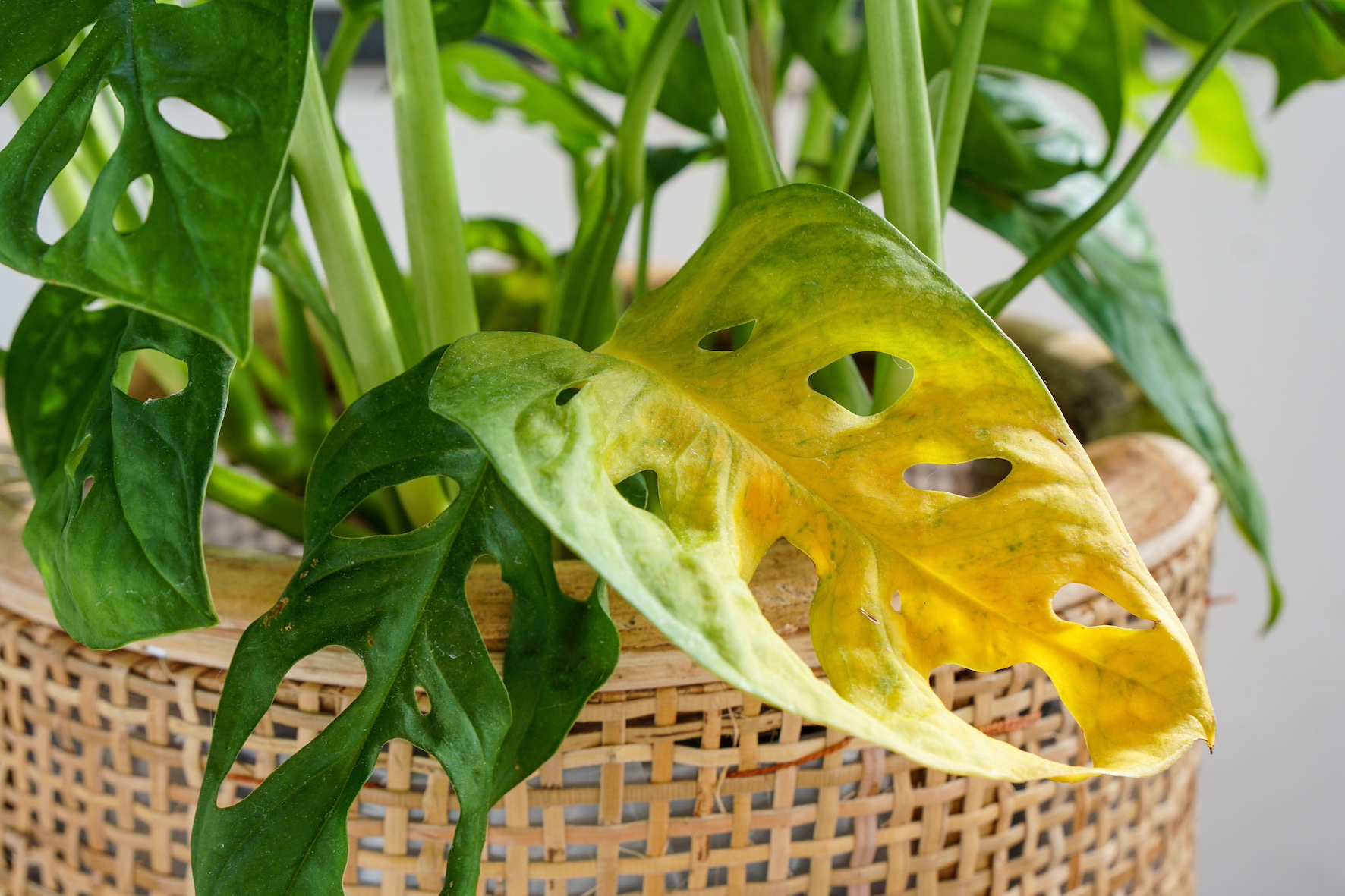
Even the most beautiful houseplants like a good soak. However, they need to be left to drain before being put back into a cache (outer) pot and not left sitting in water in the base. If your plant is frequently left in water and has soggy soil, allowing the soil to dry out is essential.
"If your houseplant is in sopping wet potting mix, slipping it out of the pot (if possible) is a great first step," says Justin Hancock, director, Costa Farms. "Exposing more of the potting mix to air will help moisture evaporate faster, bringing soil moisture levels back to where the plant wants."
2. Adjust Your Watering Schedule
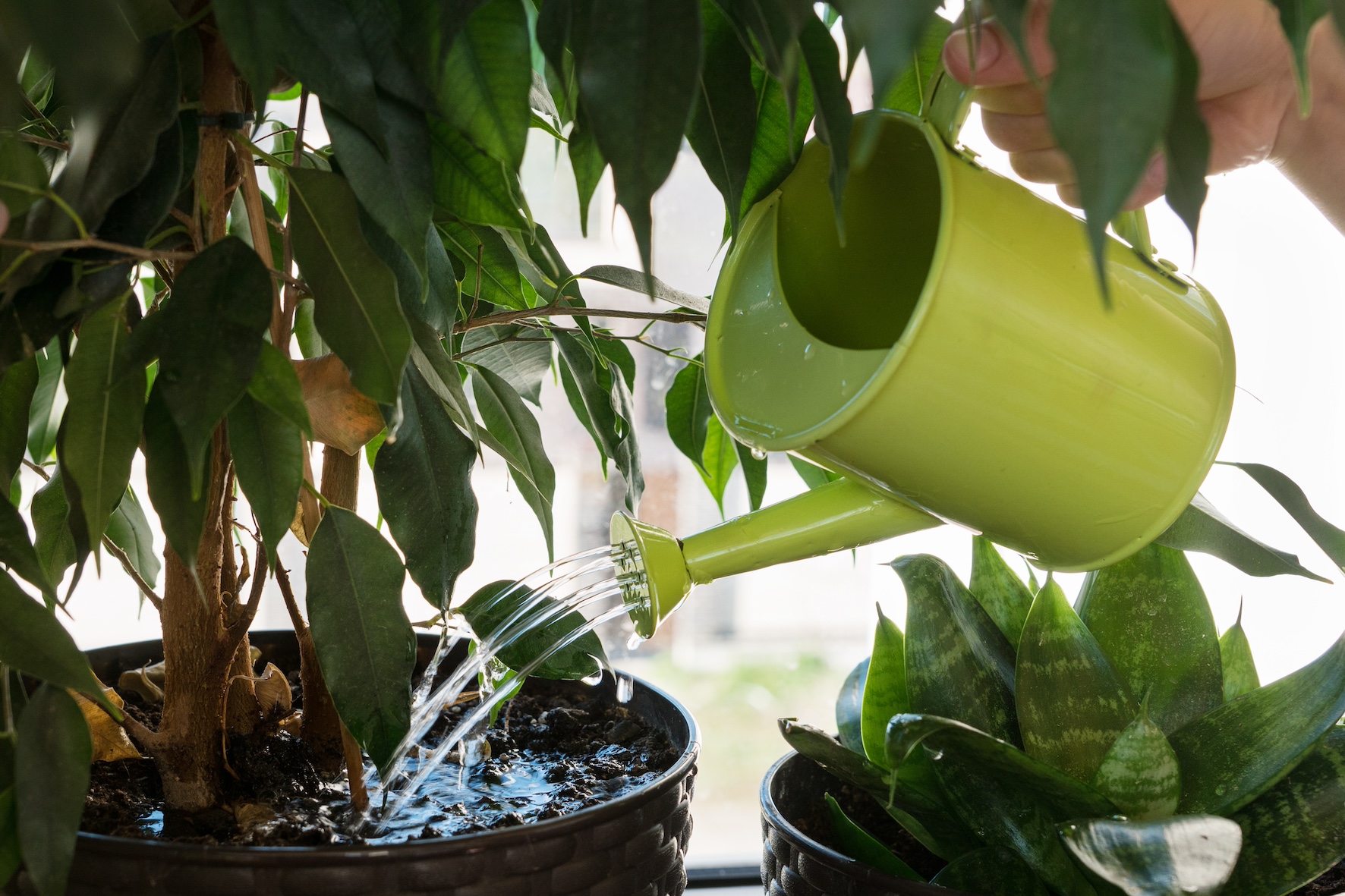
How often should you water houseplants? We may feel we need to constantly water our plants, however, there are plenty of plants that prefer their soil to dry out between waterings, such as Snake plants and Monstera. If you have overwatered a plant and it looks sickly, wait for the soil to dry before watering it again. Knowing your plants' requirements is key to their survival.
"In order to help your plant to recover from overwatering you need to first figure out why the plant was overwatered," says Paris Lalicata, plant expert, The Sill. "If you suspect you’ve overwatered it, check the watering requirements for your plant to ensure you’re not watering it too frequently. However, also check to make sure the soil and planter has adequate drainage, and the plant has the right light and temperatures."
"Plants watered late in the day may well still be damp when the temperature drops — this will cause stem rot," says William Davidson, author, Dr Houseplant. "Check temperatures, especially night-time minimums, and watering requirements."
3. Give Your Plant More Light

Plants need light to be able to photosynthesise, and they use water as part of the process. Placing a plant somewhere with more light can help it use up water faster. Struggling with natural sunlight? You can opt for an indoor grow light to brighten up your plants' space.
"If a plant isn’t receiving sun, it won’t be photosynthesizing at its normal rate and so won’t be using as much water," explains Lisa Eldred Steinkopf. "A plant in bright light in a home kept at 75°F will need more water than a plant in low light and in a lower temperature. A sunny week will have a different effect on how much water is needed compared to a cloudy week."
"Making sure your houseplant has lots of light inside is a good strategy if it's been overwatered," says Justin Hancock. "Higher light levels give the plant more energy for it to recover than lower light levels."
Stylish Indoor Grow Lights
Price: $49.99
Listed as Amazon's number 1 best seller, this grow light is easy to use and best of all, height adjustable.
Price: $199.99
This Aspect Grow Light from Amazon is sleek and easy to use. You can place it above medium to large planters to get healthy and thriving blooms.
Price: $369.99
This beautiful mid-century modern floor lamp will help promote healthy houseplant growth, while looking chic and stylish in your home. I mean, what more could you want?
4. Add an Amendment to the Soil
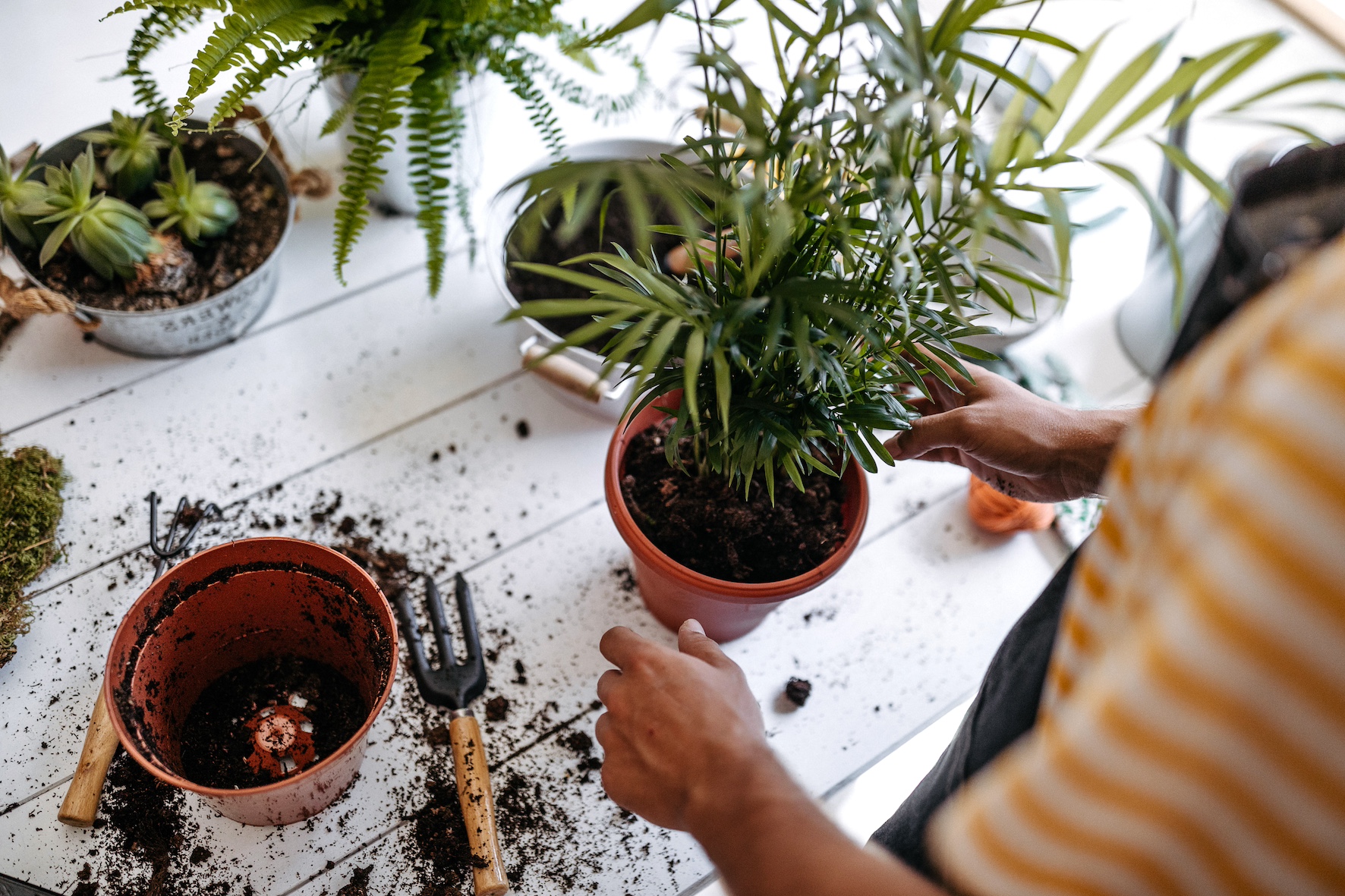
Heavy clay soils hold more water than sandy well-draining potting mixes, which is why knowing how to amend soil is key and can help your plant with drainage, when it has been overwatered.
"Repotting your houseplant into a potting medium with more aeration can be beneficial for drainage," says Justin. "Adding amendments such as perlite, bark, or sand to a soil mix increases air space."
"Many potting mediums are too dense for houseplant root health," says Lisa. "The roots cannot get enough air because the medium does not have enough aeration. Water then cannot drain through the medium fast enough.
Lisa continues: "Mixing approximately ⅓ part of a purchased potting soil, ⅓ part of vermiculite, and ⅓ part of perlite makes for a better-draining medium that is more conducive to the health of the plant."
5. Repot Your Plant
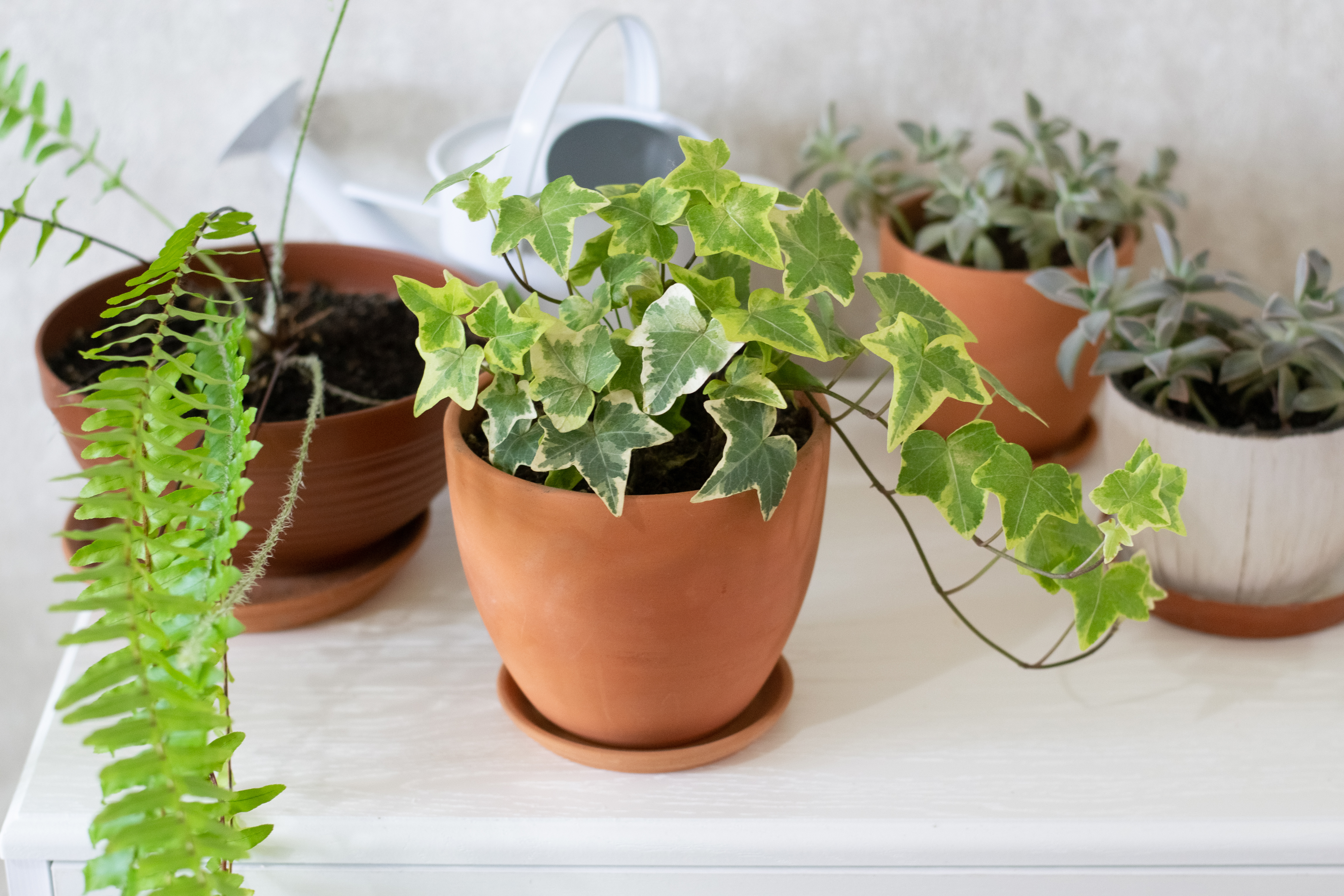
As well as giving your plant fresh soil, a new pot could be advantageous too. If there's no drainage hole, or a plant is in a pot that's too big for it, it can be detrimental to its health, particularly if it's been growing in heavy soil, or a plastic planter that retains more moisture than a plant needs.
"If your plant is in a pot that’s too large or in potting mix that holds a lot of moisture, repotting it into a smaller pot (and different potting mix) can help prevent overwatering again—especially while your plant is in its recovery phase," says Justin.
"Soil will also dry out more quickly in a planter made of porous material, such as terracotta, while a pot with a drainage hole will enable excess water to escape."
Stylish Terracotta Pots
Price: $49.99
This gorgeous terracotta pot has a drainage hole and comes with a matching saucer. Diameter of saucer 7 3/4 in. Height of pot 7 in.
Diameter at top 8 3/4 in.
Price: $33.99
This durable, yet stylish, pot is composed of unglazed terracotta, which aids moisture control and airflow of the plants' roots and soil.
Measures approx. 7" wide x 6" tall
Price: $26.74
A beautiful hand painted terracotta planter and saucer, complete with drainage hole.
Measures 5.5" H x 6.75" W
FAQs
Will a plant recover from being overwatered?
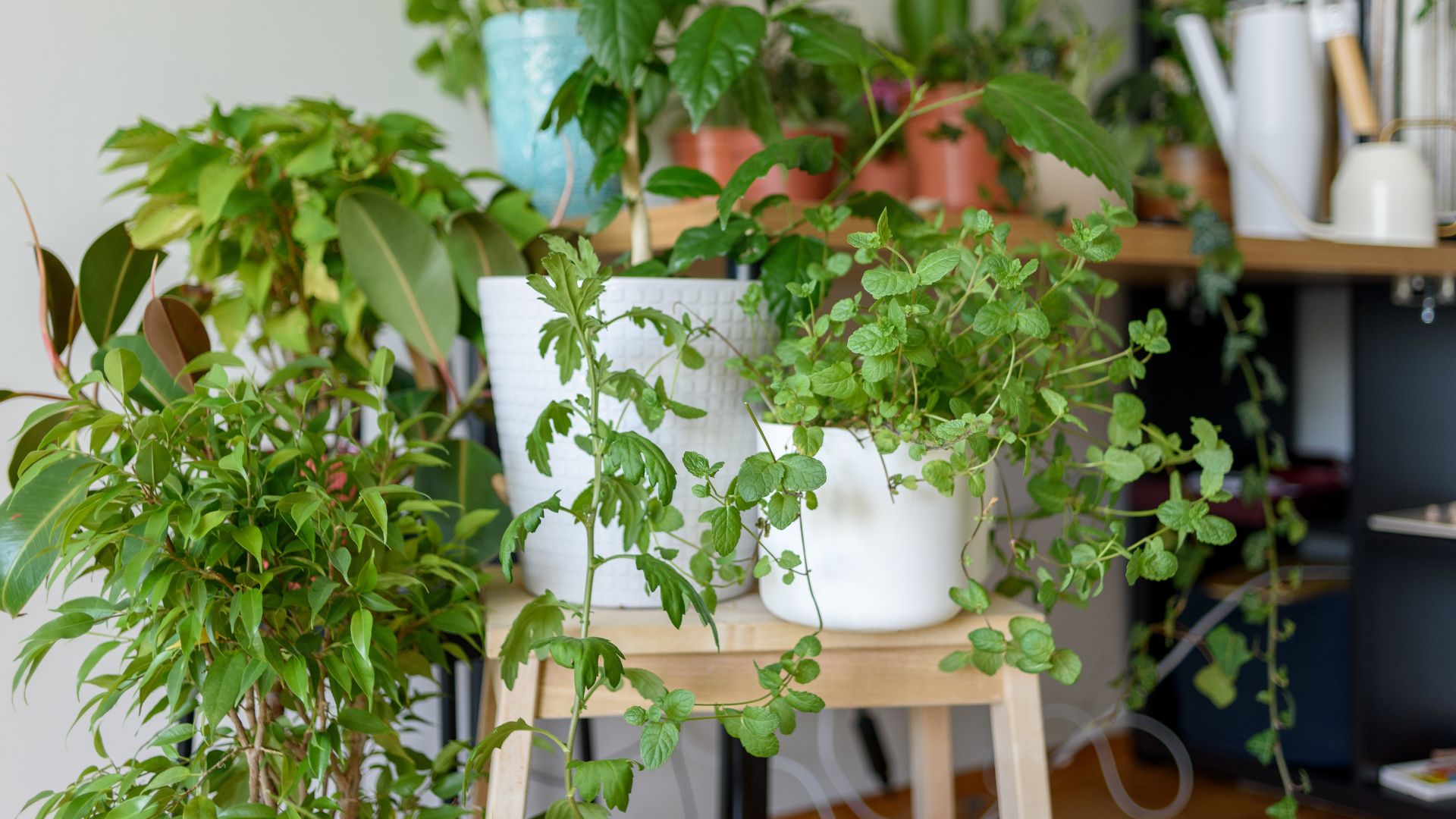
If you've tended to your plant as soon as it looks limp or sickly, it may be possible. How much a plant has been overwatered and for how long will be a crucial factor, and it's possible it may be too late.
"It depends on how much the roots were damaged from the overwatering," says Justin Hancock, horticulturalist and director, Costa Farms. "What typically happens is that roots start to suffocate and die off—often leading to pathogens like fungi attacking the roots.
Justin continues: "If a plant isn’t excessively overwatered, it should easily be able to recover if it's given good care. But if it’s been overwatered for an extended period of time, the damage to the roots could be so severe that the plant itself isn’t able to recover. However, you may be able to save the plant, depending on the species, by propagating it via cuttings."







